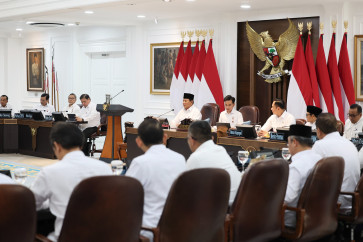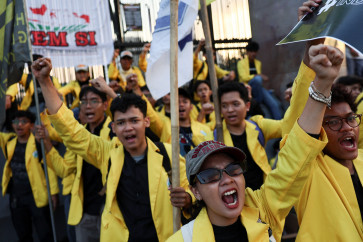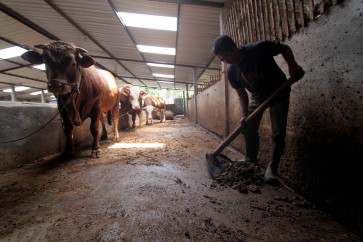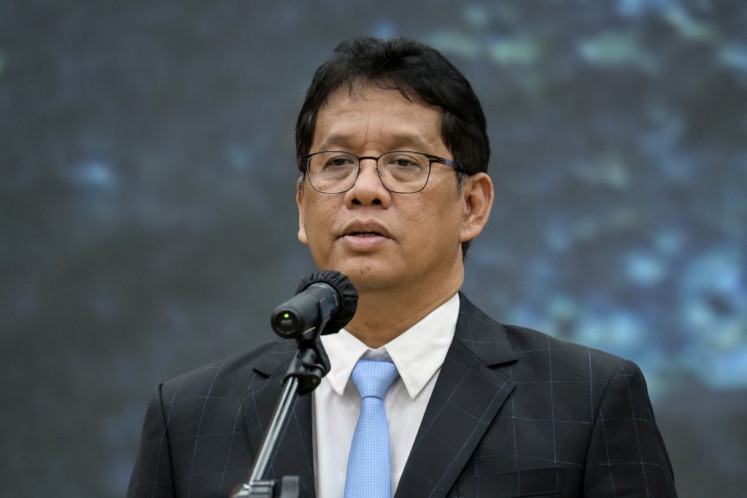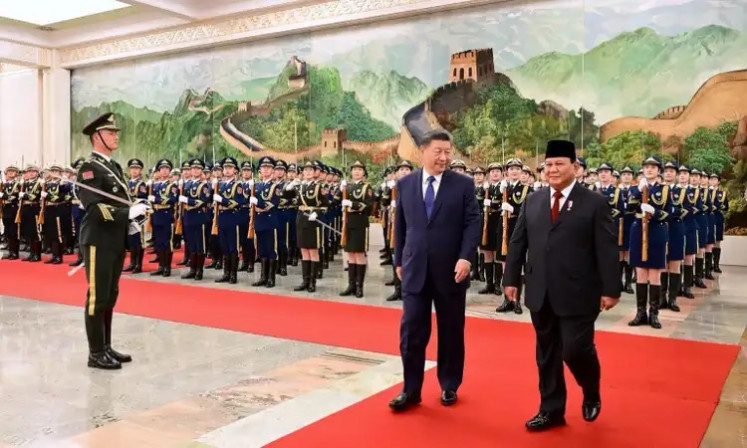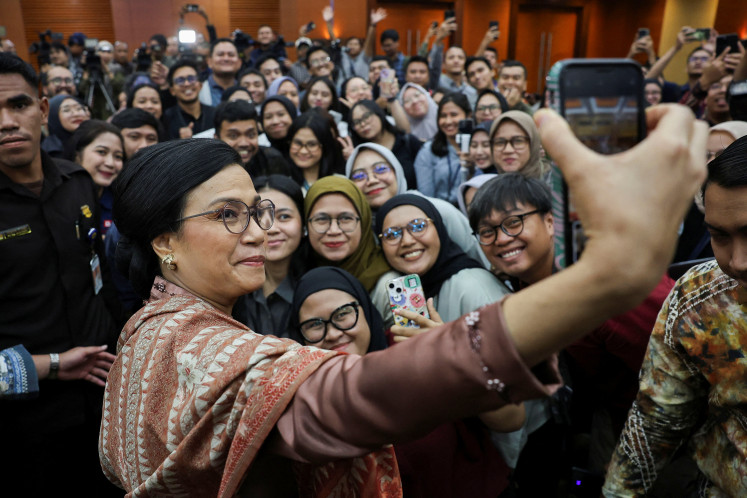Popular Reads
Top Results
Can't find what you're looking for?
View all search resultsPopular Reads
Top Results
Can't find what you're looking for?
View all search resultsIndonesian Muslims’ ignorance exposed, again
Jakartans have decided
Change text size
Gift Premium Articles
to Anyone
J
akartans have decided. The majority of them picked Anies Baswedan and Sandiaga Uno as governor and deputy governor of the capital city.
Anies and Sandiaga are overjoyed and their supporters are flaunting their victory on social media while telling supporters of incumbent Governor Basuki “Ahok” Tjahaja Purnama and Deputy Governor Djarot Saiful Hidayat how wrong they are.
Prabowo Subianto, the man behind the nomination of Anies and Sandiaga and the losing contender in the 2014 presidential election, hailed the notorious Rizieq Shihab and his Islam Defenders Front (FPI) as “the saviors of democracy.”
What is “democracy” according to Prabowo and what exactly did the FPI “save” it from? These are questions that have conveniently been ignored.
People’s responses on social media vary, but the most common reactions among Muslims center around how Jakartans need to accept the outcome of the election, along with the usual admonitions to give the presumptive elected governor and deputy governor a chance to show their capacities in leading the capital, and suggestions for reconciliation between the supporters of both sides of the political divide.
Peaceful reconciliation is always good and expected, but “peaceful reconciliation” as a mask to ignore a vicious campaign against marginalized groups and Muslim Ahok supporters that were, and still are, deployed by Anies-Sandiaga supporters and their self-styled religious gatekeepers — the National Movement to Safeguard the Indonesian Ulema Council’s Fatwa (GNPF-MUI) — simply has to be rejected.
Made Supriatma, a well-known scholar and activist, elaborated on this topic very well in his latest article published by IndoProgress on why we should not forget about the cruelty of Anies-Sandiaga’s campaign against marginalized groups.
The Jakarta election was a wake-up call for Indonesian Muslims to self-reflect and discover what is it that allows our religious teachings to be co-opted, again and again, by the power of dirty politics.
One major problem with the current collective imagination of Indonesian Muslims is blindness to the chain of violence.
Most of us have been incapable of seeing the gradual formation of the message of superiority of Islam through softer means, such as soap operas, Islamic self-help books and advertisements by Muslim clothing businesses.
The easy-to-be-digested “religious messages” in all these elements of Indonesian Muslim pop culture reduce Islam to a competition of who gets what in heaven.
Once the message of heaven and hell becomes the only thing that we care about in Islam, we will turn into automatons ready to eliminate whatever obstacles we perceive stand between us and heaven, including the presence of others with religious and cultural differences.
Another source of hatred for the others within Indonesian Muslim communities is that the inexplicably lax attitude toward the idea of an “Islamic state” (whatever that means).
As a country with huge potential in the power of the Muslim majority, and experience with Islamic claims to overthrow the national government, Indonesia can be said to be turning a blind eye to this pathological idea of an “Islamic state” that has infected many civic elements of Muslim society, including university students, for so long.
A few years ago, Hizbut Tahrir Indonesia (HTI), with its idea of a khilafah (caliphate), might have occupied a peripheral position within the realm of Indonesian Islamic activism.
Today, the ideology of HTI is being promoted freely, including by scholars who invoke the authority of Nahdlatul Ulama (NU) to justify their demand for a khilafah in Jember, East Java.
The last problem lies in the absence of significant counter-narratives that can oppose and invalidate religious claims made by hard-line groups like the GNPF-MUI.
Up to today, the destiny of Indonesian Islam hangs on a small number of progressive Muslim scholars (including Mun’im Sirry, Nadirsyah Hosen, Syafiq Hasyim and others) who are willing to continuously fight the spread of extremism among Indonesian Muslim communities through their writings and activism.
However, these lone-fighters for a moderate Islam need more institutional support from major organizations, especially the NU, Muhammadiyah and universities.
Without such support, these organizations will never gain more influence among the majority of Indonesian Muslims.
Watching a video in which one of the highest officials of the Muhammadiyah youth wing openly threatened to depose President Joko “Jokowi” Widodo if a heavier sentence was not handed down to Ahok in his nonexistent crime of blasphemy, it is time for the NU and Muhammadiyah to clearly state their opposition to the GNPF-MUI, and to prohibit their members from participating in the spreading of pathological messages.
Watching another video in which university da’wah (proselytization) activists from across Indonesia gathered at the elite Bogor Agricultural University (IPB) to express their support for the khilafah ideology, I cannot help but wonder about how many decades progressive Indonesian Muslim scholars and activists will need to undo this destructive ideology, with which some university student have been brainwashed.
One thing that is certain, we cannot cease to fight this ideology of the khilafah and must continue to reassert the primacy of the Islam which took shape in our archipelago, Islam Nusantara.
_______________________________
The writer is a PhD student in theology at the University of Notre Dame, Indiana, US.


